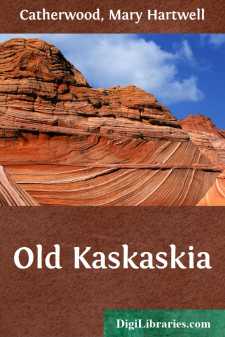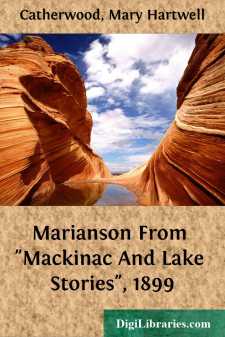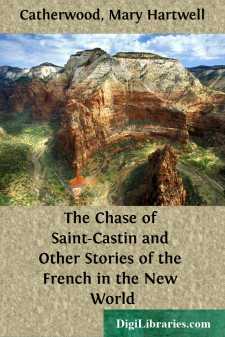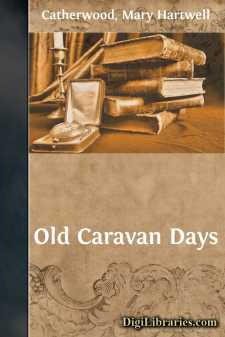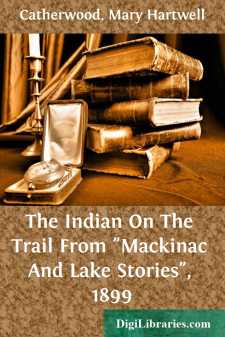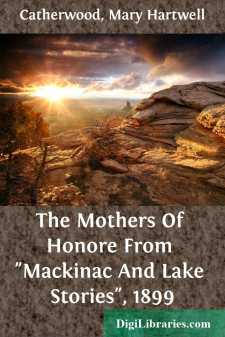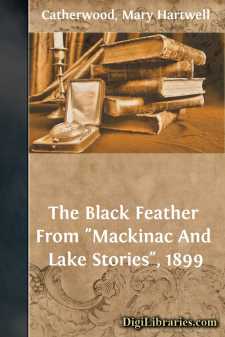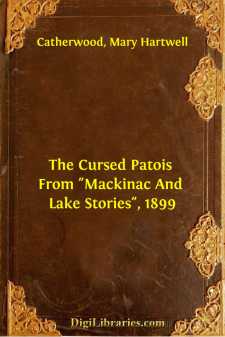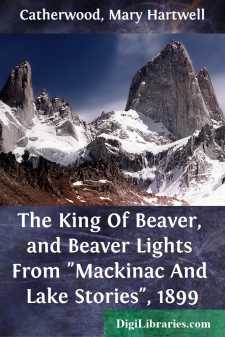Categories
- Antiques & Collectibles 13
- Architecture 36
- Art 48
- Bibles 22
- Biography & Autobiography 813
- Body, Mind & Spirit 142
- Business & Economics 28
- Children's Books 15
- Children's Fiction 12
- Computers 4
- Cooking 94
- Crafts & Hobbies 4
- Drama 346
- Education 46
- Family & Relationships 57
- Fiction 11828
- Games 19
- Gardening 17
- Health & Fitness 34
- History 1377
- House & Home 1
- Humor 147
- Juvenile Fiction 1873
- Juvenile Nonfiction 202
- Language Arts & Disciplines 88
- Law 16
- Literary Collections 686
- Literary Criticism 179
- Mathematics 13
- Medical 41
- Music 40
- Nature 179
- Non-Classifiable 1768
- Performing Arts 7
- Periodicals 1453
- Philosophy 64
- Photography 2
- Poetry 896
- Political Science 203
- Psychology 42
- Reference 154
- Religion 513
- Science 126
- Self-Help 84
- Social Science 81
- Sports & Recreation 34
- Study Aids 3
- Technology & Engineering 59
- Transportation 23
- Travel 463
- True Crime 29
Old Kaskaskia
Description:
Excerpt
PART FIRST.
THE BONFIRE OF ST. JOHN.
Early in the century, on a summer evening, Jean Lozier stood on the bluff looking at Kaskaskia. He loved it with the homesick longing of one who is born for towns and condemned to the fields. Moses looking into the promised land had such visions and ideals as this old lad cherished. Jean was old in feeling, though not yet out of his teens. The training-masters of life had got him early, and found under his red sunburn and knobby joints, his black eyes and bushy eyebrows, the nature that passionately aspires. The town of Kaskaskia was his sweetheart. It tantalized him with advantage and growth while he had to turn the clods of the upland. The long peninsula on which Kaskaskia stood, between the Okaw and the Mississippi rivers, lay below him in the glory of sunset. Southward to the point spread lands owned by the parish, and known as the common pasture. Jean could see the church of the Immaculate Conception and the tower built for its ancient bell, the convent northward, and all the pleasant streets bowered in trees. The wharf was crowded with vessels from New Orleans and Cahokia, and the arched stone bridge across the Okaw was a thoroughfare of hurrying carriages.
The road at the foot of the bluff, more than a hundred feet below Jean, showed its white flint belt in distant laps and stretches through northern foliage. It led to the territorial governor's country-seat of Elvirade; thence to Fort Chartres and Prairie du Rocher; so on to Cahokia, where it met the great trails of the far north. The road also swarmed with carriages and riders on horses, all moving toward Colonel Pierre Menard's house. Jean could not see his seignior's chimneys for the trees and the dismantled and deserted earthworks of Fort Gage. The fort had once protected Kaskaskia, but in these early peaceful times of the Illinois Territory it no longer maintained a garrison.
The lad guessed what was going on; those happy Kaskaskians, the fine world, were having a ball at Colonel Menard's. Summer and winter they danced, they made fêtes, they enjoyed life. When the territorial Assembly met in this capital of the West, he had often frosted himself late into the winter night, watching the lights and listening to the music in Kaskaskia. Jean Lozier knew every bit of its history. The parish priest, Father Olivier, who came to hear him confess because he could not leave his grandfather, had told it to him. There was a record book transmitted from priest to priest from the earliest settlement of Cascasquia of the Illinois. Jean loved the story of young D'Artaguette, whom the boatmen yet celebrated in song. On moonlight nights, when the Mississippi showed its broad sheet four miles away across the level plain, he sometimes fooled himself with thinking he could see the fleet of young soldiers passing down the river, bearing the French flag; phantoms proceeding again to their tragedy and the Indian stake.
He admired the seat where his seignior lived in comfort and great hospitality, but all the crowds pressing to Pierre Menard's house seemed to him to have less wisdom than the single man who met and passed them and crossed the bridge into Kaskaskia. The vesper bell rung, breaking its music in echoes against the sandstone bosom of the bluff. Red splendors faded from the sky, leaving a pearl-gray bank heaped over the farther river. Still Jean watched Kaskaskia.
"But the glory remains when the light fades away,"
he sung to himself. He had caught the line from some English boatmen.
"Ye dog, ye dog, where are you, ye dog?" called a voice from the woods behind him.
"Here, grandfather," answered Jean, starting like a whipped dog....


